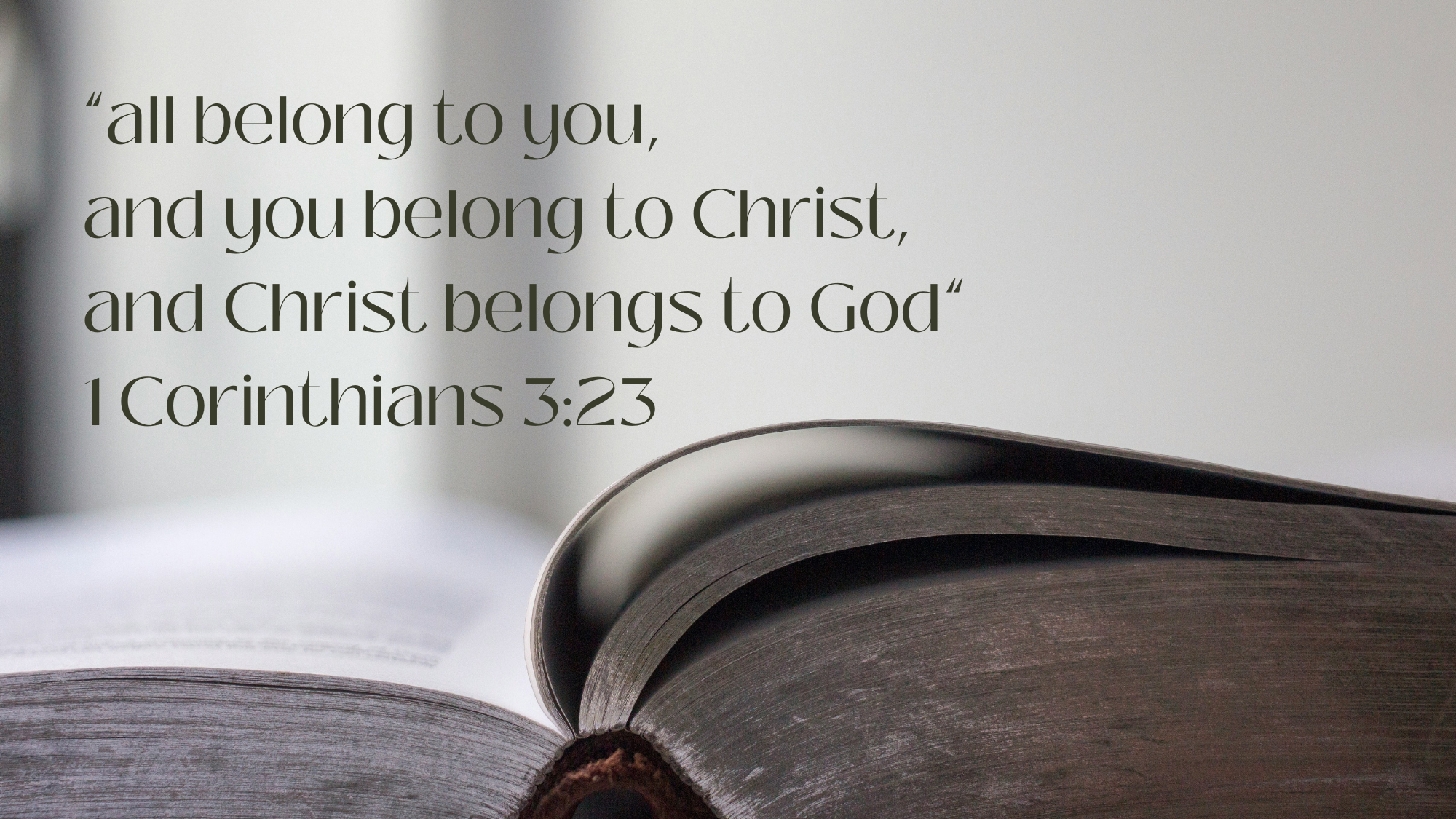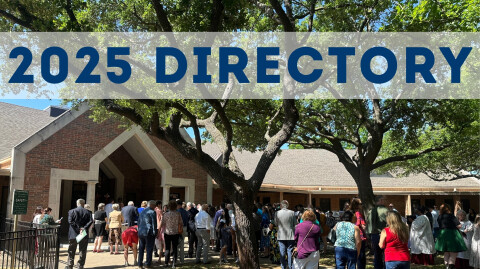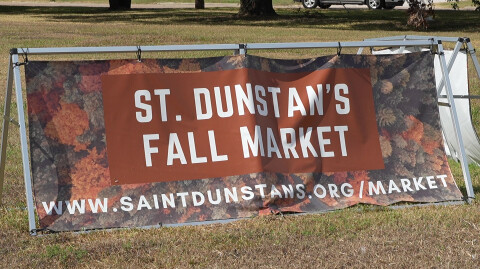There are many ways to think about stewardship. Two came to mind as I was considering where we are as a community today.
One is the “membership model.” Surely you all have noticed how everything has a membership option these days. It used to just be Costco and the gym. Now it seems every retail store wants you to join a membership program. So the “membership model” works like this: you give recurring payments to get certain perks, and they get your money—and your loyalty in the form of ongoing autopayments. It’s an extremely transactional understanding—I would say misunderstanding—of what it means to be a “member” of a “body.” It’s an efficient business tactic I suppose, but a rather hostile and manipulative one. They are buying your loyalty with your money.
I don’t think that’s a good way to think about stewardship. But I raise it because, as these kinds of commercial practices become commonplace, we have to be aware of how they can become our default mental model for other things—like annual pledges at church. But the influence is supposed to go the other way: here in the church is where we form the mental models we should take into the world and use to inform and understand our interactions there.
But he replied to one of them, “Friend, I am doing you no wrong; did you not agree with me for the usual daily wage? Take what belongs to you and go; I choose to give to this last the same as I give to you. Am I not allowed to do what I choose with what belongs to me? Or are you envious because I am generous?” So the last will be first, and the first will be last (Matthew 20:13-16).
So let me give you another way of thinking about stewardship and pledges. One of the theological principles I learned in training for our Catechesis of the Good Shepherd children’s Sunday School program is that “the purpose of a gift is to be given back.”[i] This is counterintuitive! I know it is not the commonplace way of thinking about gifts. We tend to think of gifts transactionally, as a transfer of ownership. But, in the church, we learn that the purpose of a gift is to be given back.
Every Sunday at the offertory we say “all things come of thee O Lord, and of thine own have we given thee.” This is one way of acknowledging that the purpose of a gift is to give it back.
Money isn’t the only thing we give back at the offertory. The first gifts to come down the aisle are the elements of the Eucharist: the bread and the wine. They are brought up here as gifts. And at the very end of the Eucharistic Prayer, the priest takes both elements and lifts them up to God as we all sing the Great Amen, “let it be so.” The gifts of bread and wine are given back to God.
And then, of course, the next thing that happens is God gives them right back to us. “The gifts of God for the people of God.” As we take those gifts into our bodies, we know how deeply we are, each of us, a gift of God. My body is a gift of God, my life is a gift of God. And the great hope we have is that the time will come for each of us, too, when we will give the gift of our bodies and lives back to the Giver from whom we came, as naturally, openhandedly, and freely as the gift was given. We give back freely, knowing that our lives have always been held in the love of God and that nothing we give to Him will ever be lost, but all will be given back. Because the purpose of a gift is to be given back.
So do not worry about tomorrow, for tomorrow will bring worries of its own. Today’s trouble is enough for today.… If you then, who are evil, know how to give good gifts to your children, how much more will your Father in heaven give good things to those who ask him! (Matthew 5:34, 6:11)
But love your enemies, do good, and lend, expecting nothing in return. Your reward will be great, and you will be children of the Most High; for he is kind to the ungrateful and the wicked. Be merciful, just as your Father is merciful (Luke 6:35-36)
I am the good shepherd. The good shepherd lays down his life for the sheep.… For this reason the Father loves me, because I lay down my life in order to take it up again. No one takes it from me, but I lay it down of my own accord (John 10:11, 17-18).
My sheep hear my voice. I know them, and they follow me. I give them eternal life, and they will never perish, and no one will snatch them out of my hand. My Father, who has given them to me, is greater than all, and no one can snatch them out of my Father’s hand. I and my Father are one (John 10:28-30).
To give, to receive, to give back, is to participate in an eternal reciprocal joy. It’s like that game babies love to play before they can talk, when they offer you a toy—not so you can take it away from them forever!—but because they want to experience again the joy of having it given back to them. And the joy of giving it to you again. And the joy of receiving it back again.
This is the way of the kingdom of God. “Unless you turn around and become like little children, you will never, ever enter the kingdom of heaven” (Matthew 18:3).
Hannah prayed to have a child. God gave her a child and she gave him back. She praised God for subverting the worldly, possessive, transactional order of things and she gave her child back to God (1 Samuel 1:1-2:21).
Mary was told she would have a child she didn’t ask for. She accepted him as a gift, and she praised God in her Magnificat in words that sound like Hannah’s, praising God for subverting the worldly, possessive, transactional order of things. And she gave her child back to God (Luke 1:26-2:35).
And her gift became God’s greatest gift to all of us, as Jesus gave his own self back to God on the cross. And God raised Jesus back to life, that he might share that life with all of us. This is the way of the Kingdom of God.
For all things are yours, whether Paul or Apollos or Cephas or the world or life or death or the present or the future—all belong to you, and you belong to Christ, and Christ belongs to God (1 Corinthians 3:21-23).
He who did not withhold his own Son, but gave him up for all of us, will he not with him also give us everything else? …For I am convinced that neither death, nor life, nor angels, nor rulers, nor things present, nor things to come, nor powers, nor height, nor depth, nor anything else in all creation, will be able to separate us from the love of God in Christ Jesus our Lord (Romans 8:32, 38-39).
We are increasing our pledge this year, that our joy may increase. As you pray over your pledging decision this week, I hope you’ll find joy in remembering the gifts God has given you, and in meditating on the “gift economy” of the Kingdom of God. What a gift it is to participate in giving.
Carol Cooper
[i] See Sofia Cavalletti, The Religious Potential of the Child, chapter four, “Christ the Good Shepherd and the Eucharist.”




